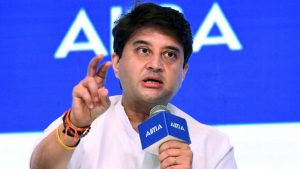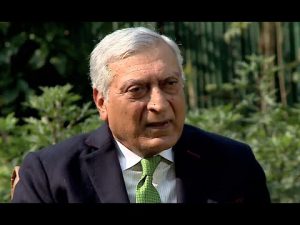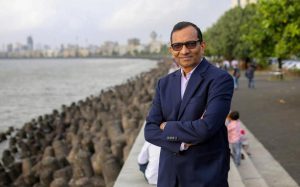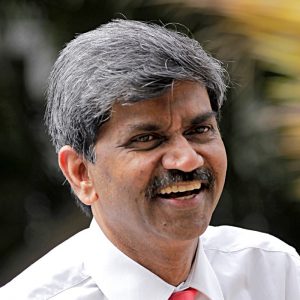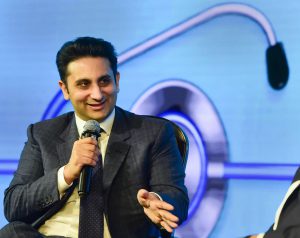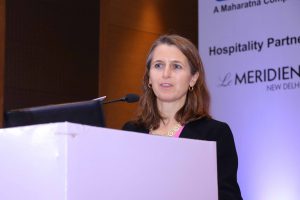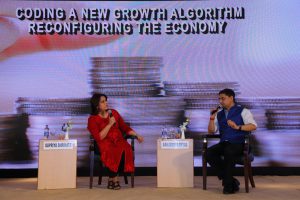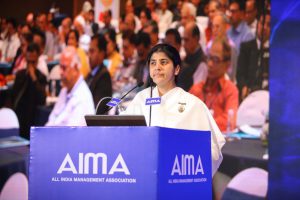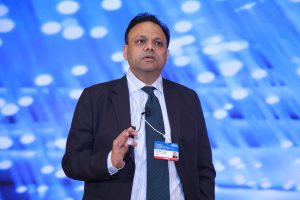Sri Sri Ravishankar, Spiritual Leader and Founder, The Art of Living Foundation addressing AIMA’s 45th National Management Convention 2018 and sharing his views on how to create a New Global Order Based on Compassion, Trust and Peace. Read Excerpts:
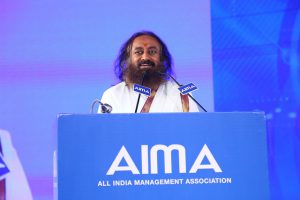
Sri Sri Ravishankar addressing AIMA’s 45th National Management Convention.
The word silence and listen has the same letters, just a little rearrangement from this side to that side. In today’s world, with such chaos, there are few listeners but many talkers. What we need to do today, first of all, is to cultivate the habit of listening to the other person. Listening to a different point of views, different opinions. Every day when you switch on your television at 9 in the evening, you can see how so many people talk simultaneously, and there’s hardly anyone to listen. This is the world that we are in. Today we think too much. 90% of the stress comes from overthinking. Can we take a few moments of silence and look at any incident with a clear mind. If we can create this habit, we can resolve many conflicts that we face in our lives. I know Sudhir Jalan ji for a long time. As Sudhir used to say how can businessman be quiet, Gurudev? I said, well, at least when he’s watching the stock market, the moment he’s quiet, he doesn’t want to be disturbed and has to watch what is happening. So this attitude to listen to others point of view is essential.
Continue reading →

